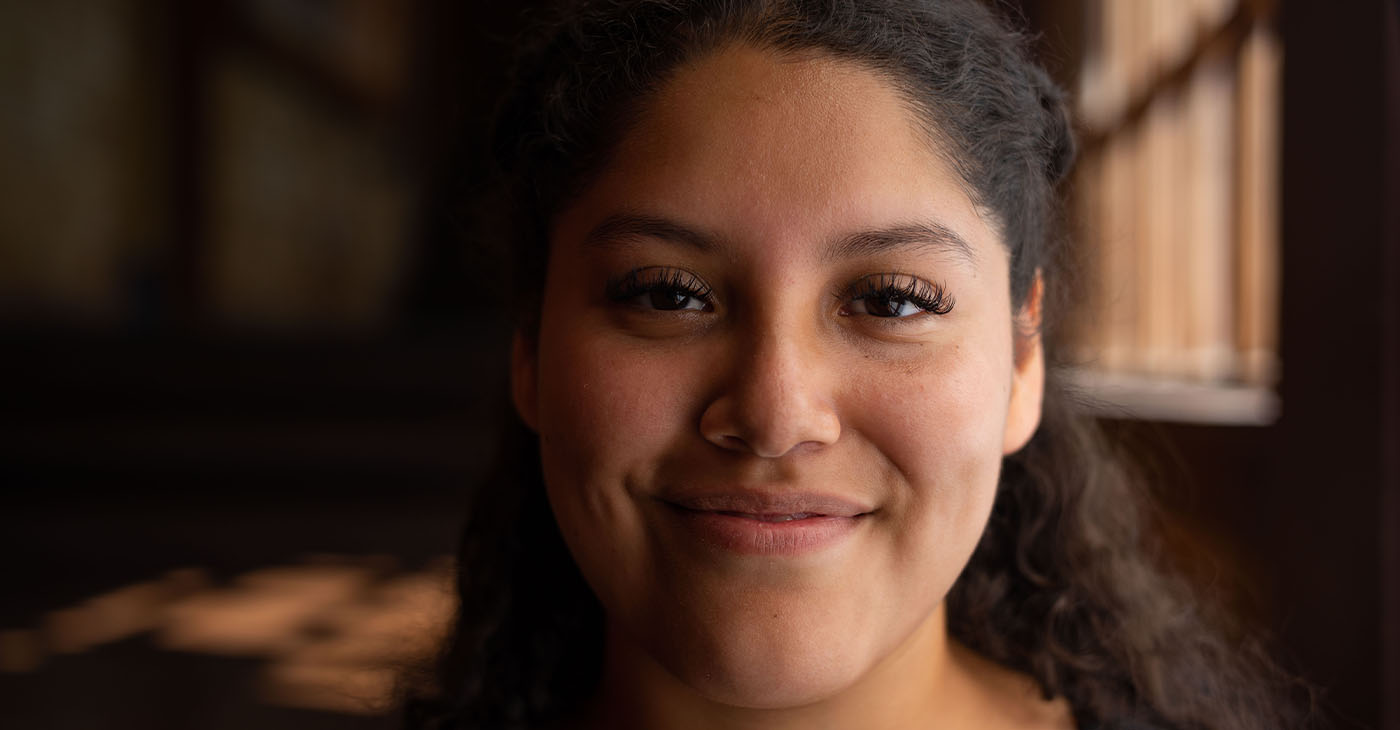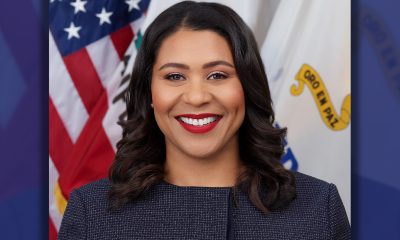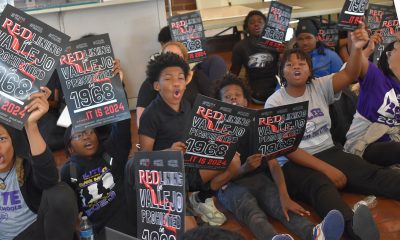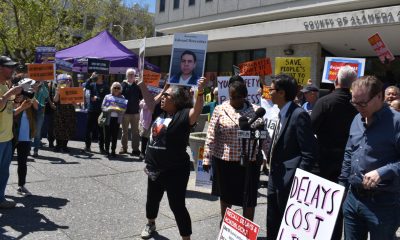Commentary
Op-Ed: The Importance of Local journalism matters more now than ever before
In the two years since I graduated from college, my social media timeline has been filled with gut-wrenching announcements of journalists across the country being laid off from publications big and small. I was trained to talk to sources, how to craft compelling leads, and pitch stories, but no one prepared me for how to deal with the unstable market what this career path would entail.

By Magaly Muñoz
In the two years since I graduated from college, my social media timeline has been filled with gut-wrenching announcements of journalists across the country being laid off from publications big and small.
I was trained to talk to sources, how to craft compelling leads, and pitch stories, but no one prepared me for how to deal with the unstable market what this career path would entail.
I watched small organizations in the Midwest vanish into oblivion, and more recently, witnessed legacy papers layoff staff in an attempt to stay afloat. The Los Angeles Times staff, a team I had once dreamed of joining, suffered a major blow when they laid off over 20% of their writers and editors in January.
If a legacy newspaper can’t keep their newsroom from slowly dying off, what does that imply for everyone else?
As I found myself spiraling into a rabbit hole of despair questioning my choice of such a rollercoaster of a career, I remembered that it’s times like these that force us to adapt because it’s not enough to just let the worst pass us by.
Yes, the future of journalism can look bleak to those of us hoping to stay in the industry for a long time, but it should also serve as a reminder that there are audiences out there relying on us to continue delivering the news that affects their daily lives.
The disparities amongst those holding all the cards and those who get crushed in the process of their choices is only growing, and it is up to journalists nationwide to go deep into the communities that they are in to expose these inequalities.
Who else is going to hold power to account when they think no one is watching? And in the Bay Area, there’s plenty of people to keep an eye on.
But news is not just the constant tragic event or political scandal, though it is important to stay on top of it. It’s also the uplifting stories that remind people why they should remain hopeful that things will get better.
I’ve had the privilege of interviewing and writing about young Black athletes with Olympic dreams, community based organizations fighting for the rights of those who don’t feel empowered enough on their own, and businesses who just want to bring a little love back into the community.
It’s these stories that stand as powerful and significant as the reporting that may not always be pleasant to write about.
In an era of social media and the quick spread of misinformation, especially in an important election year, we have to work twice as hard to make sure that our readers are getting the facts and are not being persuaded by clickbait articles suggesting otherwise.
But as journalists, it’s crucial that we keep fighting for ourselves and for conditions that allow us to keep doing the work that we do. We all deserve stability in these unprecedented times.
We need our audience to stay with and trust us, even when it seems like things are going off course. We will persevere, even when all else feels like it’s failing.
Commentary
Opinion: Lessons for Current Student Protesters From a San Francisco State Strike Veteran
How the nation’s first College of Ethnic studies came about, bringing together Latino, African American and Asian American disciplines may offer some clues as to how to ease the current turmoil on American college campuses over the Israel-Hamas war. After the deadline passed to end the Columbia University encampment by 2 p.m. Monday, student protesters blockaded and occupied Hamilton Hall in a symbolic move early Tuesday morning. Protesters did the same in 1968.

By Emil Guillermo
How the nation’s first College of Ethnic studies came about, bringing together Latino, African American and Asian American disciplines may offer some clues as to how to ease the current turmoil on American college campuses over the Israel-Hamas war.
After the deadline passed to end the Columbia University encampment by 2 p.m. Monday, student protesters blockaded and occupied Hamilton Hall in a symbolic move early Tuesday morning.
Protesters did the same in 1968.
That made me think of San Francisco State University, 1968.
The news was filled with call backs to practically every student protest in the past six decades as arrests mounted into hundreds on nearly two dozen campuses around the country.
In 1970, the protests at Kent State were over the Vietnam War. Ohio National Guardsmen came in, opened fire, and killed four students.
Less than two weeks later that year, civil rights activists outside a dormitory at Jackson State were confronted by armed police. Two African American students were killed, twelve injured.
But again, I didn’t hear anyone mention San Francisco State University, 1968.
That protest addressed all the issues of the day and more. The student strike at SFSU was against the Vietnam war.
That final goal was eventually achieved, but there was violence, sparked mostly by “outside agitators,” who were confronted by police.
“People used the term ‘off the pigs’ but it was more rally rhetoric than a call to action (to actually kill police),” said Daniel Phil Gonzales, who was one of the strikers in 1968.
Gonzales, known as the go-to resource among Filipino American scholars for decades, went on to teach at what was the positive outcome of the strike, San Francisco State University’s College of Ethnic Studies. It’s believed to be the first of its kind in the nation. Gonzales recently retired after more than 50 years as professor.
As for today’s protests, Gonzales is dismayed that the students have constantly dealt with charges of antisemitism.
“It stymies conversation and encourages further polarization and the possibility of violent confrontation,” he said. “You’re going to be labeled pro-Hamas or pro-terrorist.”
That’s happening now. But we forget we are dealing not with Hamas proxies. We are dealing with students.
Gonzales said that was a key lesson at SF State’s strike. The main coalition driving the strike was aided by self-policing from inside of the movement. “That’s very difficult to maintain. Once you start this kind of activity, you don’t know who’s going to join,” he said.
Gonzales believes that in the current situation, there is a patch of humanity, common ground, where one can be both pro-Palestine and pro-Israel. He said it’s made difficult if you stand against the belligerent policies of Benjamin Netanyahu. In that case, you’re likely to be labeled antisemitic.
Despite that, Gonzales is in solidarity with the protesters and the people of Gaza, generally. Not Hamas. And he sees how most of the young people protesting are in shock at what he called the “duration of the absolute inhumane kind of persecution and prosecution of the Palestinians carried out by the Israeli government.”
As a survivor of campus protest decades ago, Gonzales offered some advice to the student protesters of 2024.
“You have to have a definable goal, but right now the path to that goal is unclear,” he said.
About the Author
Emil Guillermo is a journalist and commentator. A veteran newsman in TV and print, he is a former host of NPR’s “All Things Considered.”
Activism
Oakland Post: Week of May 1 – 7, 2024
The printed Weekly Edition of the Oakland Post: Week of May 1 – 7, 2024

To enlarge your view of this issue, use the slider, magnifying glass icon or full page icon in the lower right corner of the browser window. ![]()
Activism
Oakland Post: Week of April 24 – 30, 2024
The printed Weekly Edition of the Oakland Post: Week of April 24 – 30, 2024

To enlarge your view of this issue, use the slider, magnifying glass icon or full page icon in the lower right corner of the browser window. ![]()
-

 Community3 weeks ago
Community3 weeks agoFinancial Assistance Bill for Descendants of Enslaved Persons to Help Them Purchase, Own, or Maintain a Home
-

 City Government5 days ago
City Government5 days agoCourt Throws Out Law That Allowed Californians to Build Duplexes, Triplexes and RDUs on Their Properties
-

 Business3 weeks ago
Business3 weeks agoV.P. Kamala Harris: Americans With Criminal Records Will Soon Be Eligible for SBA Loans
-

 Activism4 weeks ago
Activism4 weeks agoOakland Post: Week of April 10 – 16, 2024
-

 Activism2 weeks ago
Activism2 weeks agoOakland Post: Week of April 24 – 30, 2024
-

 Community3 weeks ago
Community3 weeks agoAG Bonta Says Oakland School Leaders Should Comply with State Laws to Avoid ‘Disparate Harm’ When Closing or Merging Schools
-

 Community3 weeks ago
Community3 weeks agoRichmond Nonprofit Helps Ex-Felons Get Back on Their Feet
-

 Community3 weeks ago
Community3 weeks agoOakland WNBA Player to be Inducted Into Hall of Fame

















































